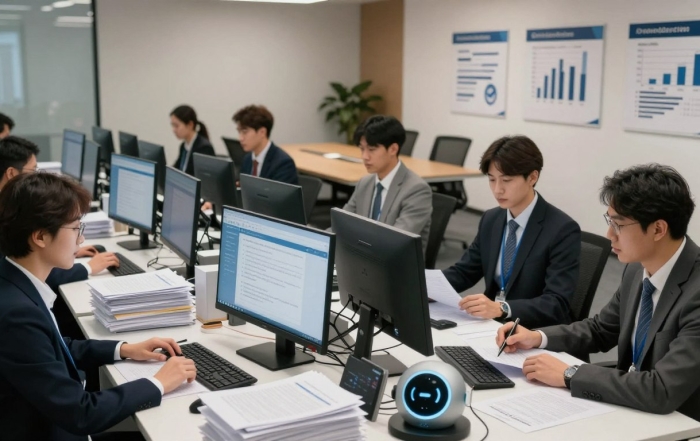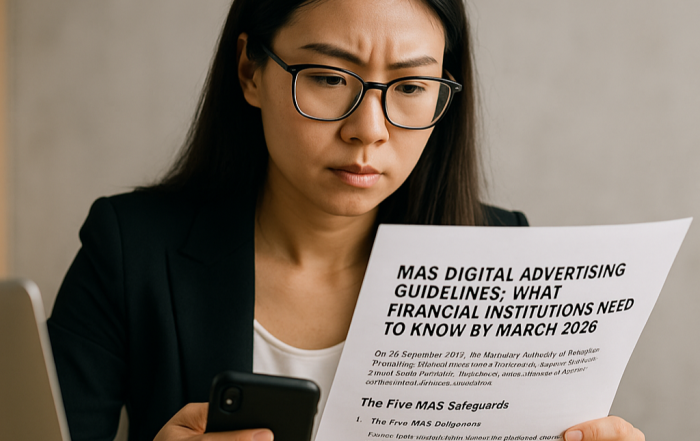This section provides an overview of the regulatory requirements and licensing framework under the Monetary Authority of Singapore (MAS). Click on a topic of interest to learn more.
SFO: Your Guide to 13O, 13U, AML/CFT, and CMS License
Explore SFO, MAS Licensed, CMS License requirements for 13O, 13U, and AML/CFT policy in Singapore.
Outsourced Compliance Solutions for Insurance Brokers
Outsource your insurance broker's compliance needs to Alder - experts in MAS filings, AML/CFT, and Outsourced Compliance.
Venezuela Developments in 2025–2026: What Singapore Financial Institutions Should Watch
Venezuela-linked cases can trigger higher sanctions and AML/CFT risk. Alder supports Singapore firms with customer screening and outsourced compliance for peace of mind.
Practical, Light-Touch Compliance for Lean VCFM
Compliance should not slow a fund down. We support VCFMs with right-sized, cost-efficient compliance that scales as you grow, so you can focus on investing while regulatory expectations are met.
Overview of Fund Management Licences in Singapore
Singapore remains one of the world’s top destinations for fund managers, managing S$6.07 trillion in assets as of December 2024. To operate locally, all fund management companies must be licensed or registered with the Monetary Authority of Singapore (MAS) under the Securities and Futures Act (SFA). This guide outlines the key licensing requirements under MAS’s latest framework.
MAS Digital Advertising Guidelines: What Financial Institutions Need to Know by March 2026
On 25 September 2025, the Monetary Authority of Singapore (MAS) issued the Guidelines on Standards of Conduct for Digital Advertising Activities. These new rules, effective 25 March 2026, apply to all financial institutions (FIs) and their appointed digital marketers — including agencies, affiliates, and influencers (“finfluencers”).
Recent Updates: Singapore’s Sanctions against Russia
Following Russia’s invasion of Ukraine, Singapore imposed targeted financial measures under MAS’s notice dated 13 March 2022. These measures prohibit financial institutions from conducting transactions or providing financial assistance to designated Russian banks, entities, and individuals. Institutions must freeze related assets and restrict dealings involving controlled strategic or dual-use goods bound for Russia. MAS’s directive highlights the importance of vigilance, robust due diligence, and strong compliance controls to ensure adherence to Singapore’s sanctions regime.
Cryptocurrencies are Changing the Fintech Landscape
As Singapore positions itself as a global FinTech hub, cryptocurrency activities are gaining traction under tighter regulatory oversight. The Monetary Authority of Singapore (MAS) now requires all Digital Payment Token (DPT) service providers to be licensed and meet stringent AML/CFT and technology risk management standards. Whether you’re an exchange operator or an investor exploring the digital asset space, understanding the Payment Services Act is essential to staying compliant and future-ready.
Understanding the Risks of Cryptocurrency
Singapore continues to advance as a global crypto hub under the Payment Services Act (PS Act). With stricter oversight by MAS to address ML/TF, cyber, and consumer protection risks, crypto service providers are expected to strengthen compliance, risk management, and cyber resilience to operate responsibly in this evolving landscape.
Starting a Hedge Fund in Singapore
As the economy of Singapore grows dynamically, investors are attracted to explore the opportunities and invest their money here. As a result, we can expect the hedge fund industry to perform well in the country. Singapore is competing alongside with Hong Kong, to become the top location that connects fund managers with asset owners who are looking for companies to assist with portfolio management.
AML/CFT Guidance for External Asset Managers
The RFMC regime has been officially repealed by MAS, with all fund managers now transitioning to the A/I LFMC framework. The change streamlines regulatory oversight and supports Singapore’s growth as a trusted global fund management centre.
Overcoming the Challenges of Cross-Border Payments
Interoperability lies at the heart of seamless cross-border transactions, empowering businesses and individuals to send and receive money effortlessly across borders. With rising global payment flows and demand for faster, cheaper, and more inclusive services, Singapore is taking the lead through innovative FinTech solutions. From PayNow-PromptPay linkages to the ambitious Project Nexus, Singapore’s initiatives are driving real-time connectivity and fostering financial inclusion across the region — paving the way for a borderless payments future.
Overview of Collective Investment Schemes (CIS)
Collective Investment Schemes (CIS) allow investors to pool funds into a managed portfolio of assets such as equities, bonds, or cash. Administered under the Monetary Authority of Singapore (MAS), all CIS offers must comply with the Securities and Futures Act (SFA) and the Code on Collective Investment Schemes.
Enhancing Cross-Border Connectivity
Financial inclusion fuels economic growth and reduces poverty, especially in developing regions. Singapore supports global initiatives like the G20 roadmap to make cross-border payments faster, cheaper, and more accessible. Through partnerships with ASEAN neighbours such as Malaysia and the Philippines, Singapore is enhancing interoperability and building a more connected regional payment ecosystem — a vital step toward inclusive and sustainable financial integration.
The Buy Side of Capital Markets: How Does It Work?
Global capital markets participants are broadly classified into three groups — buy-side, sell-side, and financial intermediaries. While sell-side firms focus on issuing and selling securities, buy-side firms invest in them for fund management purposes. This article explores the buy-side segment, including hedge funds, private equity, and venture capital.
The Future of Singapore’s Hedge Fund Industry
Singapore’s strong trade network and the signing of RCEP have deepened regional integration and boosted investor confidence. The hedge fund industry benefits from these developments, attracting significant inflows from global investors. Fund managers operating in Singapore are required to hold a Capital Markets Services (CMS) licence under MAS regulations.

















